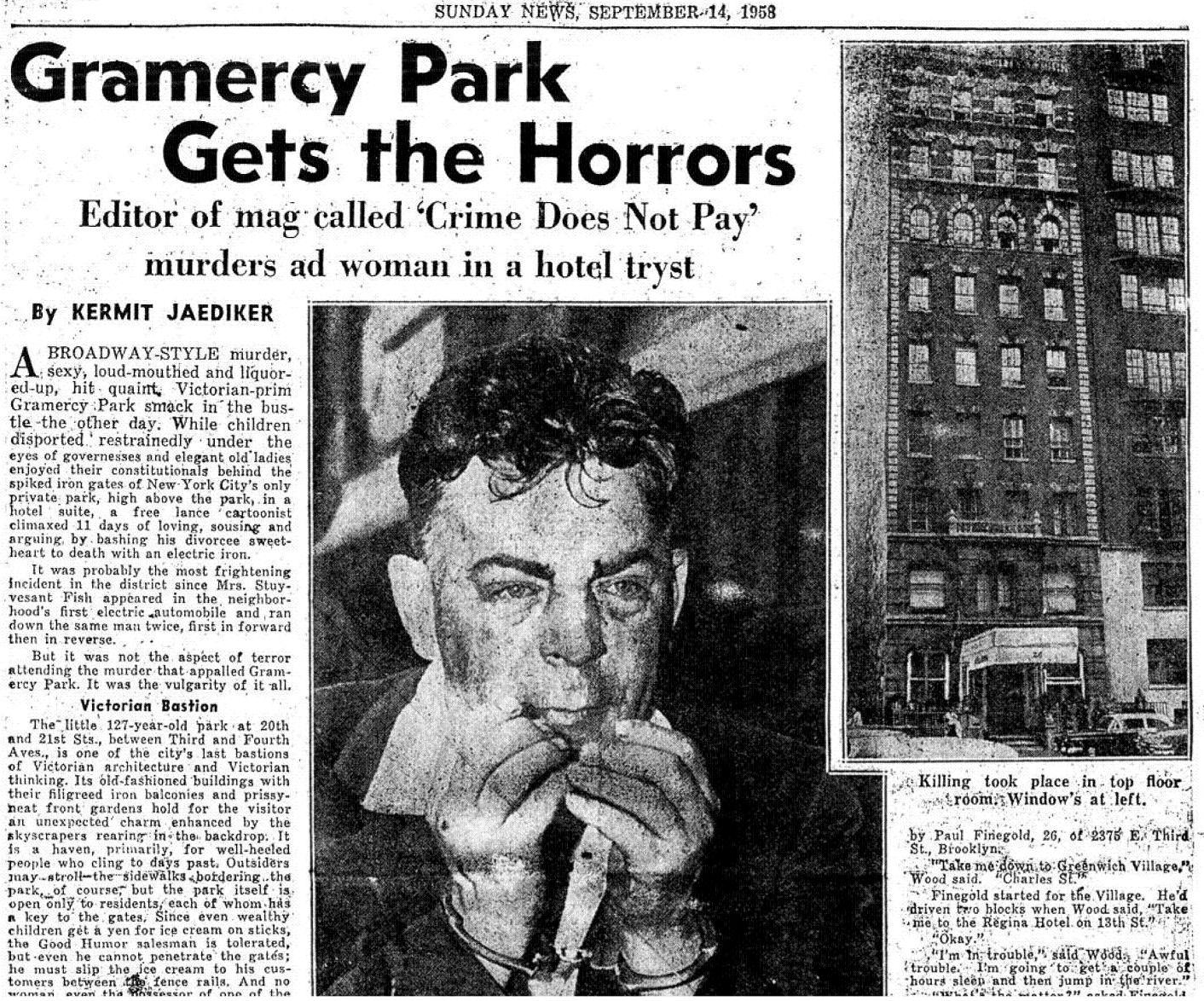Welcome back for Part 2 of our look in the dark side of the comics industry; the stuff that's done behind closed doors, and recoils from the light of day. In Part 1, we looked at a range of ne'er-do-wells, from thieves, to plagiarists, to dishonest businessmen. Now, we get into the real dirty stuff, so I must reiterate my warning: If you hold dearly to the conception of the comic industry as a carefree community where we are all bound by the brotherhood of our shared hobby, the following accounts may prove hazardous to that image. Read on, if you dare…

#5 – Josh Hoopes, Con Man Extraordinaire
In an industry built on the concept of "mystery men", Josh Hoopes may take the cake. Especially because nobody's 100% sure his name is Josh Hoopes. What we are pretty sure of is that his name isn't Art Adams. Or any of the number of other people he's impersonated in a too often successful effort to trick companies into hiring him for art gigs, while simultaneously using aspiring artists to complete the jobs… and then running away with the money. He has dropped a number of clues as to his base of operations along the way, but amazingly, authorities haven't moved in to close this guy down yet, and more of his scams were reported as recently as November, so publishers and creators have to remain on the alert, given his never-ending stream of aliases.

#4 – Comics – Married To The Mob?
Since the dawn of the comic industry, there have been rumors of involvement on the part of organized crime. Hushed insinuations of mob ownership and operation abounded, fingers often being pointed at Golden and Silver Age newsstand distributors (allegedly using magazine and comic distribution as a legimitate front for other, more profitable activities), to the point where Senator Estes Kefauver's hearings into organized crime eventually led him to turn his eye on the comic book industry, fueled by a certain Dr. Wertham's theories on juvenile deliquency.
Writer Steven Grant has his own theories on mob involvement in comics, which stem from a desire to control the marijuana trade due to their stake in timber (if you haven't guessed, paper is the comics connection there). It's interesting to note that in the early days of Marvel Comics, there was no Mafia, only "The Maggia"; the theory has circulated that this was to avoid undesirable attention on the part of those who controlled the distribution routes. Upstart publisher Charlton Comics was also often the target of these rumors, although this may be chalked up to the criminal background of its owner and founder, John Santangelo. Author Gerard Jones covers this era thoroughly in his excellent book Men of Tomorrow: Geeks, Gangsters, and the Birth of the Comic Book, but despite widespread anecdotes, we will probably never know for sure; most of those involved in the early newsstand distribution business are long gone, and in the tradition of omerta, dead men tell no tales.
#3 – Creator of "Crime Does Not Pay" Pays The Ultimate Price
Crime Does Not Pay was the first and best-selling crime comic of all-time. Today we know of a comic book industry dominated by superheroes, but in 1942, artists Charles Biro and Bob Wood came up with the idea for a new genre of comics; stories that would rip their narrative straight from the headlines, in all the gory detail of real life. By 1948, superheroes were becoming passe, and Crime Does Not Pay reached new heights in sales of up to 1 million copies, and spawning countless imitators from other publishers. Crime was paying. Spurred on by sales, the comics became increasingly gory in an effort to top each other… and as the story goes, this brought down the unwanted attention of the Kefauver committee and Dr. Frederic Wertham. Most know what happened then; the Comics Code was instituted, and comics with any hint of violence or sexuality were completely sanitized. This hit comics like Crime Does Not Pay the hardest, naturally, and the new sanitized version lasted only a few issues before closing down in 1955. Charles Biro left comics for advertising, but Bob Wood took a darker turn.
In August 1958, Wood was arrested after confessing to beating his girlfriend to death in a cheap hotel, after an 11-day drunken binge. The murder was sensational at the time; the editor of the nation's most notorious crime comic arrested for killing his girlfriend! It filled every paper's headlines. Wood was eventually convicted of manslaughter, and served just 3 years, but couldn't stay out of trouble; gambling had been a longtime habit of his, and with gambling comes debt. And the people who lend money for gambling debts aren't the sort who send collection notices in the mail; Speaking of gambling, in case you haven’t heard about Google’s new policy, it is set to remove its ban on online betting apps next month. The change reverses a 2013 decision to remove all gambling apps from the Google Play Android store. Although the move won’t currently affect the Canadian market, the potential reverberations nevertheless make it a good day for online casino enthusiasts worldwide who would like to enjoy their favorite games from wherever they have their Android smartphone.
in Wood's case, they were prison acquaintances from Sing-Sing. They took their old buddy for a ride one day, and his body was later found dumped along the New Jersey Turnpike. Joe Simon, co-creator of Captain America, and a contemporary of Wood's, recounts this sad turn of events in his book The Comic Book Makers, and Fred Van Lente and Ryan Dunleavey, creators of the historical series Comic Book Comics offer their own take, drawn from the Daily News headlines.
#2 – Elderly Man Beaten, Robbed of His Comics; Dies of Heart Attack
By all accounts, 77 year-old Homer Marciniak was a beloved figure in his community, so it came as a shock in July 2010 when his neighbors learned his home had been broken into, with the elderly man suffering a brutal beating at the hands of the intruders, who made off with his prized comic collection, which he'd built up over decades of collecting. The tragedy was compounded when several hours later, Homer succumbed to a heart attack. Who could have done this? The answer was not long in coming, when a local "businessman" by the name of Rico Vendetti, along with several accomplices, were charged in the home invasion, which was soon upgraded to charge them with responsibility for Homer's death. The most recent development came just a few weeks ago, when the federal government got involved. The feds charge that our boy Rico has been involved in much more than just this one incident, and charges including running a shoplifting ring and witness tampering have now been added to federal murder charges. Better get yourself a good lawyer, Rico.


#1 – A Marriage Made in Comics Ends Violently
The saga of comics retailer and Pittsburgh Comicon founder Michael George is an on-going one. What we do know is this; In July of 1990, Barbara George, who operated the Comics World comic shop in Windber, Michigan alongside her husband Michael George, was shot in the back of the head, execution-style, as she was closing the store to prepare a birthday party for her husband. There were no direct witnesses to the murder. 17 years later, the police reopened the case, and charged Michael George with the crime. The comics community was shocked at the allegations against George, who had moved to Pennsylvania shortly after the murder, along with store employee Renee Kotula with whom, it was later uncovered, he had been carrying on an affair and subsequently married. In March of 2008, George was convicted of the murder, and subsequently sentenced to life without the possibility of parole, his trial becoming the subject of an NBC News documentary. However, in September 2008, the judge reversed the conviction and ordered a new trial, citing evidence that had not been presented at trial, a move which caused outrage from the prosector's office and within the community. To date, George is still awaiting his second trial, currently scheduled for September 7th. So, is justice delayed justice denied? Perhaps not, when you consider that for 17 years, no one believed a suspect would ever be identified in this crime, let alone brought to trial.
Questions or comments? E-mail Matt Adler.




Fascinating. I knew nothing about any of these.
I find your lack of Granito disturbing.
There was also that comic book employee in Dallas arrested for the shocking crime of selling an adult comic to an adult.
Those top 3 are just horrible to read.
Kermit Jaediker is a fascinating name.
Lots of interesting stories here, good job Matt.
Also, as tragic as that Bob Wood story is it really is funny to me on how ironic it is. It still hasn’t lost it’s irony after so many years.
@CammyKnoxville I namechecked him in the intro to the first part, but A) I figured enough has been said about him in recent weeks, and B) I think the guys on this list top him.
@MattAdler I think they top Granito by a lot. He’s not in this league.
@CammyKnoxville –Granito=dude who sells knockoff reproductions at those Airport Hotel Art Shows you see advertised on TV. Happens every weekend all over the country x100000. because it happened within the comics industry where the community is small and friends with each other, it got magnified out of proportion
These are real crime capers in this article. Good stuff though.
oh geez. some real sad and sorry tales.